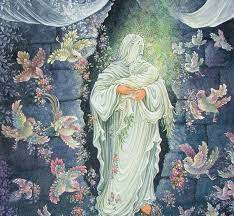
The Unique Characteristics of Imam Ali

Within the history of Islam, no other individual after the Prophet Muhammad (PBUH) had the unique characteristics of Imam Ali ibn Abi Talib (AS). If the people, rather than God, were to settle on the best and most qualified person as the successor to the Prophet, nobody would have been more suitable than Ali. A few of Ali’s (AS) unique characteristics include:
- Ali’s pure lineage: Ali (AS), who was the cousin and son-in-law of the Prophet Muhammad (PBUH), is from Bani-Hashim. The Hashimi family within the tribe of Quraysh was famous for its moral virtues and supreme humanistic characteristics. Magnanimity, generosity, courage, and so many other virtues are of famous characteristics of Bani-Hashim. Moreover, each of these virtues at its highest degree exists in his holiness Ali’s (AS) nature[1].
- The Miraculous Birth: Ali (AS) was the only person in history who was given permission by God to be born in the Holy Kaaba in a miraculous fashion. On his birthday, his mother – Fatimah Bint Asad- went to the “Al-Haram Mosque” when she felt labor pain and came near the wall of Kaaba and asked God for help. An instant later, before the eyes of Abbas ibn Abd al-Muttalib and Yazeed ibn Taaf, the walls of Kaaba broke open and Fatimah bint Asad, went in. After she entered, the walls closed again and for three days and nights, nobody was able to enter the Kaaba, even from the door. After three days and three nights, on the 13th of Rajab, thirty years passed the ‘Am al-Fil (Year of the Elephant); the wall broke open again, and Fatimah came out together with her infant and said: “I heard a message from the unseen to call my newborn son, Ali”[2]
- Brought up by the Prophet: His holiness Ali (AS) did not stay with his parents for long. Since it absolutely was Allah’s will for him to gain more perfection, therefore, the honored Prophet [PBUH] took care of his education from the beginning of his birth. Thus, Ali, more than any other person, benefited from the Prophet’s exemplary moral characteristics, like honesty, trustworthiness, loving, and chivalry[3].
Taken from “Hidden from the Eyes of the World: Who Are the Shia and What Do They Say?” by Masoud Basiti & Zahra Moradi
[1] al-Bidaya wa al-Nihaya (by Ibn Kathir), Volume 2, Page 244; Tarikh Yaqubi, Volume 1, Page 206; Sira an-Nabawiya (by Ibn Hisham), Volume 1, Page 45
[2] Mustadrak al-Sahihain, Hyderabad, India, 1324 SH (1925 AD), Volume 3, Page 483 [Farsi]; Sarh al-Kharida al-Ghaybiyya fi Sharh al-Qasidah al- Ayniyya, Page 15
[3] Sira an-Nabawiya (by Ibn Hisham), Volume 1, Page 262; Tarikh Tabari, Volume 2, Page 313